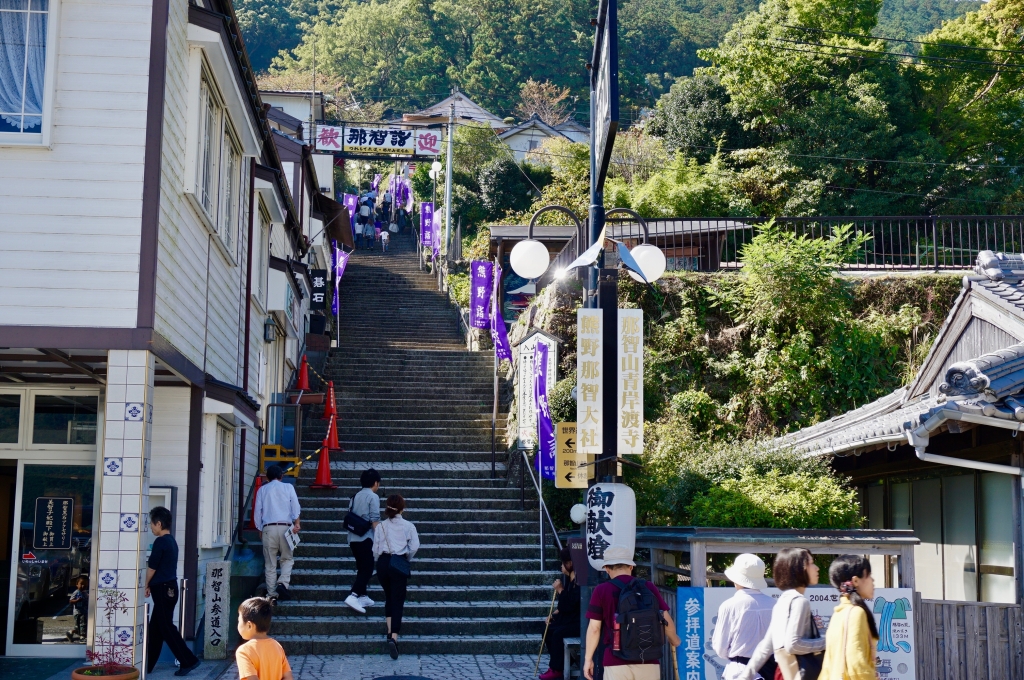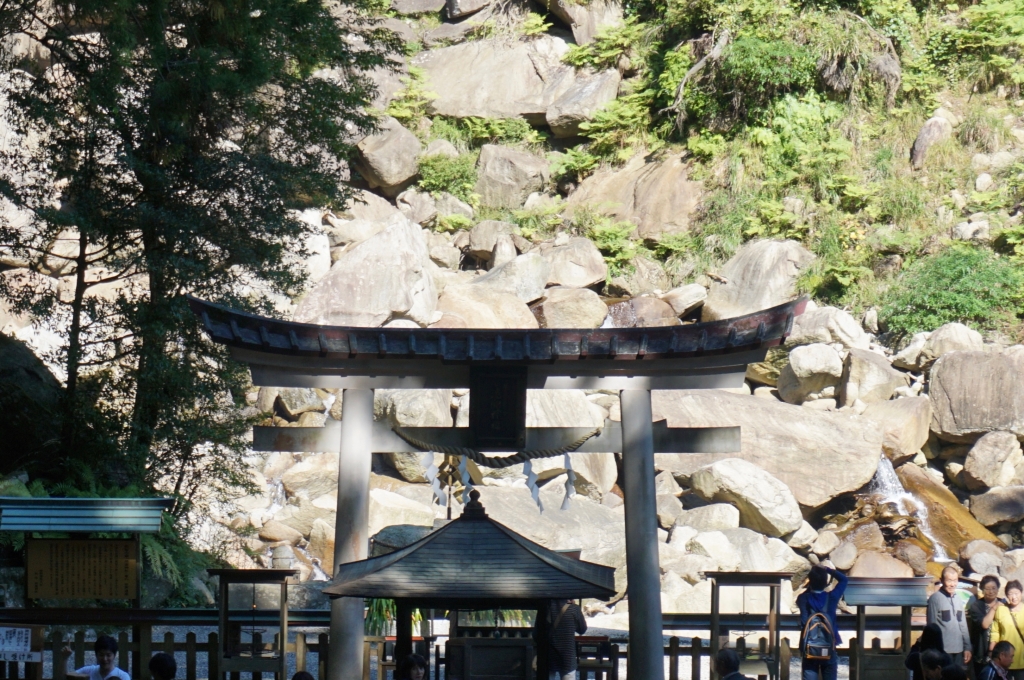Isanami’s Kumano Miya
Isanami died in a wildfire in Kumano. She had built a miya in which to attone for her regret in giving birth to the incorrigible youngest son, Sosanowo. The older children were Hiruko Wakahime, a gifted poet; eldest son Amateru Amakami who had pledged to be responsible for the welfare of the people of Hinomoto; and another son named Tsukiyomi. Sosanowo received his name for having been born in the land of Sosa.
With unbridled jealousy for his elder brothers especially Amateru who, he felt, was unduly favored, Sosanowo was always on a rampage. He trampled the rice paddy fields, caused the death of one of the women weaving sacred garments, and caused much havoc in the land.
Isanami and Isanagi had, earlier, unified the language of the different tribes so that they could communicate with each other and cooperate in community efforts and thus build a young nation. As Isanami was praying in her miya which she called Kumano for her kuma shame, Sosanowo started a fire. The fire spread rapidly and Isanami was consumed. There is much more to the story of Sosanowo, but that is a tale for another time.
The Shrines of Kumano
The head shrines of Kumano are the Kumano Nachi Taisha, the Kumano Hongū Taisha, and the Kumano Hayatama Taisha. All are located in Wakayama prefecture.
Kumano Nachi Taisha 熊野那智大社 and Nachi no Taki 那智滝

The Kumano Nachi Taisha is located on a yama adjacent to the Nachi Waterfall. The Nachi no Taki is the tallest waterfall in Japan with a single drop of 133 m. There is a shrine at the foot of the falls.
Nearby are the stairs for climbing up to the taisha precincts. The view at the top is magnificent and it feels wonderful bathed in sunshine and breathing fresh air. The pagoda and falls make up the famous scene. The prayer hall is red and white, and behind it are the six honden housing the kami. Starting from the right inner hall, the deities are Ōnamuchi (son of Sosanowo), Susano (Sosanowo), Izanagi (Isanagi), Izanami (Isanami), Amaterasu (Amateru) and 天神地祗.


***


